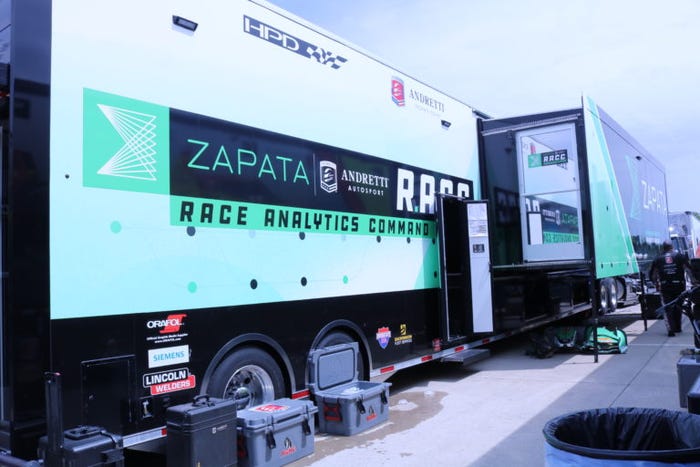
Connects decision-makers and solutions creators to what's next in quantum computing
How to access quantum computers and simulators via the cloud
February 20, 2023

Quantum computing is set to transform many sectors over the coming years. However, very few quantum computers are commercially available, and sufficiently powerful models are prohibitively expensive to most enterprises, as well as requiring bulky refrigeration units in many cases.
Cloud-based quantum computing offers developers, researchers, and businesses a platform to develop and test quantum algorithms on real quantum computers or simulators via the cloud. Several large IT companies and a few smaller companies provide this type of cloud service, known as quantum-as-a-service (QaaS), and while access can be expensive for corporate users, some offer access free to researchers.
According to a blog post by Omdia chief quantum analyst Sam Lucero, access to quantum computing resources can cost about $1,000 to $2,000 an hour for cloud access, compared with $20 million to $40 million for an on-premises hardware sale.
These are some noteworthy global QaaS providers.
IBM Quantum
IBM’s quantum system features a 127 qubit processor and the company’s Qiskit quantum development toolkit for building and deploying applications. Users can even build and execute quantum computing circuits.
Google Quantum AI
Google provides researchers with access to its quantum computing hardware, allowing them to run their quantum programs on Google’s quantum processors. Google’s Cirq is an open-source quantum computing platform that enables users to build and test algorithms.
Amazon Bracket
Amazon Bracket users can test their algorithms on a local simulator. Likewise, they can use the Amazon Bracket software development kit for building quantum applications and running algorithms on quantum computers.
Microsoft Azure Quantum
Microsoft offers cloud-based access to algorithms created by 1QBit and Microsoft. The Microsoft Quantum Computing Kit includes chemistry, machine learning and numeric libraries.
Alibaba Cloud
Alibaba Cloud offers access to an 11-qubit quantum computer via its cloud services. The platform is open to scientific researchers. Public users can learn about basic quantum information knowledge on the cloud platform and interact with scientists online.
D-Wave Leap
D-Wave’s Leap quantum cloud service provides developers access to a cloud-based quantum processor build quantum-hybrid applications in real time. Developers can also use a feature called the hybrid solver service, which combines both quantum and classical resources to solve computational problems.
Xanadu Cloud
Xanadu Cloud offers users free access to photonic quantum computers, software, and support. Its free plan provides users with credits for running small workloads on its Borealis quantum hardware. It also offers a full-stack Python library for constructing, simulating and executing programs on photonic quantum computers.
QuTech Inspire
QuTech’s Inspire claims to be Europe’s first public-access quantum-computing platform. It offers users a two-qubit “semiconductor electron spin processor,” a five-qubit “superconductor Transmon processor,” and three simulators. The platform integrates with IBM’s QisKit.
QC Ware Forge
QC Ware provides quantum engineers with circuit building blocks to create and run algorithm simulations for data scientists, financial analysts, and engineers. It focuses on binary optimization, linear algebra, Monte Carlo methods and machine learning.
Quantinuum AI
Quantinuum’s AI platform incorporates quantum natural language processing, cloud-based quantum machine learning services, and quantum deep learning. The company also offers a quantum computing software development kit, TKET, to create and execute programs for gate-based quantum computers.
AQT
AQT’s ion-trap platform is a freely available online quantum simulator, with or without noise, for the office environment. It seeks to bridge the gap between exploratory academic research and highly specialized, commercially available, cloud-based resources.
IonQ Quantum Cloud
The IonQ Quantum Cloud provides access to the company’s trapped-ion systems via the Quantum Cloud API. It claims to be compatible with all major quantum software development kits, such as QisKit and Cirq.
Terra Quantum
Based in Germany, Terra Quantum provides users access to a library of algorithms, such as hybrid quantum optimization and quantum neural networks. It also offers high-performance simulated quantum processing units (QPU)and solutions for secure quantum and post-quantum communications.
While this list is not exhaustive, it exemplifies the breadth and depth of companies offering quantum-as-a-service. As the industry matures, providers will make more resources and services available to developers.
About the Author(s)
You May Also Like






